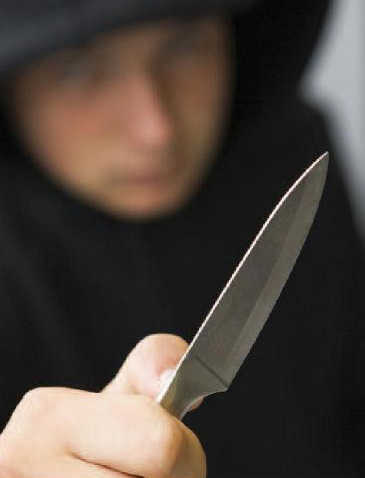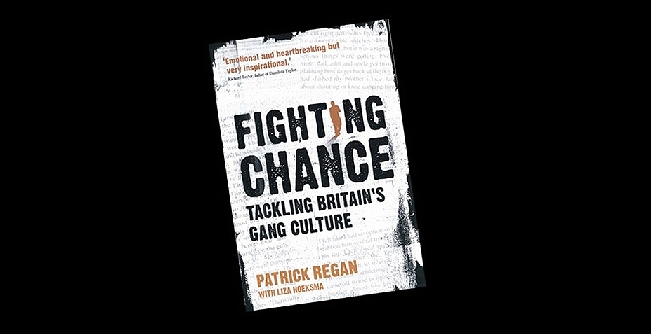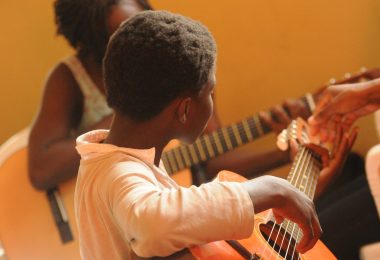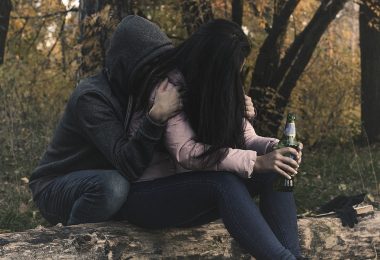Young people need to look up to positive role models who will remain part of their lives and guide them to a better future, as Patrick Regan, author of fighting chance, reveals.
It may not be PC to say it but I am not afraid to tell some home truths on the need for father figures.
Today, one in four children are brought up by a single parent and in 90% of those cases it is the mother who is raising the children, leaving a huge lack of father figures in homes across the country. Sometimes there may be a man living with them, but he’s not their father and often these temporary father figures don’t stay long and probably only add to the insecurity in a child’s life.
Now I’m certainly not in any way trying to put down women or men who for whatever reason are looking after their children alone. There are many one-parent families across the country whose children never go near a gang or get into trouble and I think that we should celebrate that fact. There are young people who despite all the pressures upon them make courageous choices to stay out of gangs and away from trouble.
But, through my research for my new book, Fighting Chance, I explore the complex drivers that turn young people towards gangs, there seems little doubt that the lack of a good, consistent and present father figure who can provide a positive role model is a major contributing factor in young people turning to gangs for an albeit distorted version of that role.
 The tragedy is that many young people who live in some of the most disadvantaged areas of our big cities in particular, will find their ‘father figure’ and their own identity from their peers in a gang rather than in the home. Gangs have always had names; most recently in the area in which I live they’ve taken to using post-codes to identify themselves and simply being in the ‘wrong’ post-code can all too often to spill over into violence.
The tragedy is that many young people who live in some of the most disadvantaged areas of our big cities in particular, will find their ‘father figure’ and their own identity from their peers in a gang rather than in the home. Gangs have always had names; most recently in the area in which I live they’ve taken to using post-codes to identify themselves and simply being in the ‘wrong’ post-code can all too often to spill over into violence.
One thirteen-year-old boy appeared in a music video made by some of his friends from a different neighbourhood. As a consequence, a few days later, he was stabbed. In my book I asked some of these gang members for the reasons behind the rivalry.
And that’s the horror of it; the meaninglessness of it all but even more so the cycle that’s begun where young people just accept it and perpetuate the anger and violence to a new generation.
We could all sit back and just accept, “that’s the way it is now.”
Last month XLP launched its new double decker bus which travels to different estates every day engaging with young people and their parents, creating a real sense of community and alternative to gang culture. As part of the celebrations I watched one young lad jumping around on the bouncy castle: his dad was standing next to me and his breath smelt like he has been drinking all day. He told me he had lived on the estate for 10 years and was unemployed and on the estate there are no green areas.
As I watched this kid I realised he doesn’t really have the chance to be young and to enjoy what many of our children take for granted. And his dad doesn’t really know how to be a dad. One young person said “if you want to tackle this issue, you need to tackle the house”. Young people need role models, people to look up to that are not just football stars and pop stars but people who will be part of their lives guiding them to a better future.
Every gang member I asked who had got out of the gang had said the answer was finding someone who wasn’t the gang leader to believe in you and stick with you and show you their are alternatives to a lifestyle of fear and violence.
One thing of which I am convinced is that if we want to see change we must be role models to young people in our communities who often don’t have any. That for me is where the idea of the Big Society should be played out and I hope that the recent announcement regarding Brooke Kinsella’s role in tackling knife crime, is one that the new Government intends to see through.








